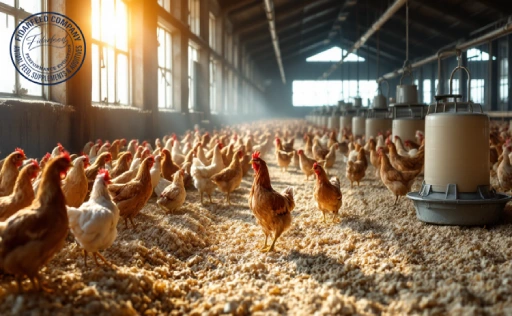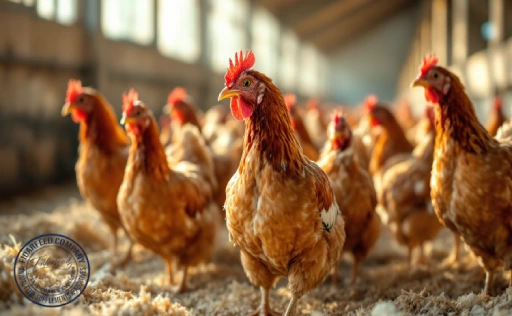
Best Dog Foods for Small Breeds are more than just a category on a pet store shelf—they’re a necessity for dog breeders who raise small, delicate, and energetic breeds like the Pomeranian. With their fluffy coats, big personalities, and sensitive digestive systems, Pomeranians need a diet that supports their specific health and energy requirements. Whether you’re an experienced breeder or just starting out, choosing the right food can impact your dogs’ vitality, longevity, and even their behavior. Let’s explore how to make the best feeding decisions to keep your tiny companions thriving.
Why Small Breeds Like Pomeranians Need Specialized Nutrition
Pomeranians may be small in size, but their metabolism runs hot—burning calories faster than many larger breeds. Because of this, they need calorie-dense food that doesn’t overfill their tiny stomachs. A one-size-fits-all approach to feeding simply doesn’t work.
Learn more about: Synbiotic Supplement for Dogs and Cats
Small breeds are also more prone to issues like hypoglycemia, dental disease, and joint problems. Nutrition plays a central role in managing these risks. The best dog foods for small breeds are formulated with the right balance of energy, vitamins, and minerals to keep these problems in check.
Key Nutrients to Look For in the Best Dog Foods for Small Breeds
When choosing dog food for a Pomeranian, check the label—not just the brand name. Look for:
-
High-quality protein from sources like chicken, lamb, turkey, or fish. It supports lean muscle mass and energy.
-
Healthy fats, especially omega-3 and omega-6 fatty acids, which contribute to a glossy coat and healthy skin.
-
Calcium and phosphorus in balanced ratios to support strong teeth and bones.
Learn more about: The Ultimate Guide to Skin Diseases in Dogs: Symptoms, Treatment, and Prevention
-
DHA (docosahexaenoic acid) for brain development—especially crucial for puppies.
-
Probiotics and prebiotics for gut health and better digestion.
Remember, it’s not about just loading the food with nutrients, but about delivering them in bioavailable forms the body can actually use.
Top Ingredients That Support Pomeranian Health and Energy
Beyond the basic nutrients, certain superfood ingredients can elevate your Pomeranian’s health:
-
Sweet potatoes provide a digestible carbohydrate source and natural fiber.
-
Blueberries and cranberries offer antioxidants that help fight inflammation.
Learn more about: Why Your Dog Has Severe Diarrhea and How to Cure It
-
Pumpkin supports digestive regularity.
-
Salmon oil not only improves coat quality but also boosts cognitive function.
These ingredients are often included in premium small breed formulas and can make a noticeable difference in your dog’s appearance and energy levels.
What to Avoid: Common Dog Food Ingredients That Don’t Suit Small Breeds
Some dog foods—even well-marketed ones—contain fillers or harmful ingredients that can do more harm than good, especially for small breeds like the Pomeranian.
Avoid:
-
Artificial colors and preservatives like BHA, BHT, and ethoxyquin.
-
Corn, soy, and wheat as primary ingredients, which can trigger allergies and digestive issues.
Learn more about: Understanding Skin Problems and Hair Loss in Dogs: Symptoms, Causes & Solutions
-
Meat by-products of unknown origin.
-
Excessive salt or sugar, which can lead to long-term health problems.
Always choose brands that are transparent about their ingredient sourcing and quality.
Dry vs. Wet Dog Food for Pomeranians: Which One Is Better?
This is one of the most common dilemmas among Pomeranian breeders. Each has pros and cons.
Dry food (kibble) helps clean teeth and is more convenient for storage and feeding. However, it may be harder for picky or older dogs to chew.
Learn more about: Why is My Dog Stressed? Common Causes of Stress in Dogs
Wet food (canned) is usually more palatable and hydrating, but it may stick to teeth and spoil faster if left out.
Many breeders opt for a mixed feeding approach—combining the benefits of both. Just be sure to adjust portion sizes to avoid overfeeding.
Feeding Tips for Pomeranian Puppies and Senior Dogs
Different life stages require different feeding strategies:
-
Puppies need frequent meals—typically 3 to 4 times a day—with high-protein, high-fat formulas to fuel growth and brain development.
-
Adult Pomeranians thrive on a balanced diet with a focus on joint, skin, and heart health.
-
Senior dogs may benefit from lower-calorie, high-fiber foods that support joint health and weight management, often supplemented with glucosamine and chondroitin.
Always monitor your dog’s body condition and energy level to make necessary adjustments.
Homemade vs. Commercial Food: What’s Right for Your Pomeranians?
Some breeders prefer homemade diets to control every ingredient. While this can be rewarding, it’s also risky without veterinary guidance. Nutritional imbalances are common when recipes aren’t carefully calculated.
Learn more about: Best Probiotic for Small Dogs: A Complete Guide
Commercial foods, especially those formulated for small breeds, offer consistency, balance, and convenience. However, you can still enhance commercial diets with healthy toppers like cooked pumpkin, a spoon of plain yogurt, or small pieces of boiled chicken—just be cautious of calorie overload.
How to Transition Your Pomeranian to a New Dog Food Safely
Changing your Pomeranian’s diet should be gradual. Here’s a safe schedule:
-
Days 1–3: 25% new food, 75% old food
-
Days 4–6: 50% new food, 50% old food
-
Days 7–9: 75% new food, 25% old food
-
Day 10 onward: 100% new food
Monitor for signs of gastrointestinal upset, such as loose stools or vomiting. If symptoms occur, slow down the transition and consult a vet if needed.
Final Thoughts: Choosing the Best Dog Foods for Small Breeds with Confidence
Feeding your Pomeranians isn’t just about satisfying hunger—it’s about fueling their life, health, and joy. The best dog foods for small breeds are those that support their size-specific needs, promote longevity, and keep their personalities shining bright.
Whether you’re a seasoned breeder or new to the game, making informed decisions about nutrition can truly elevate the well-being of your dogs. Read labels, understand the ingredients, and don’t hesitate to seek advice from a veterinary nutritionist.
Have questions or favorite brands to share? Drop your thoughts in the comments—we’d love to hear from fellow dog lovers and breeders like you. Let’s keep our little companions thriving together.







